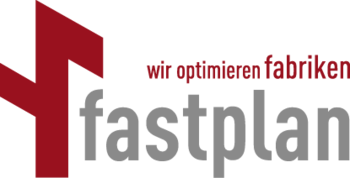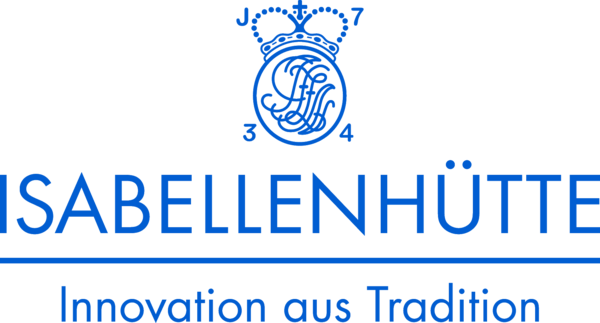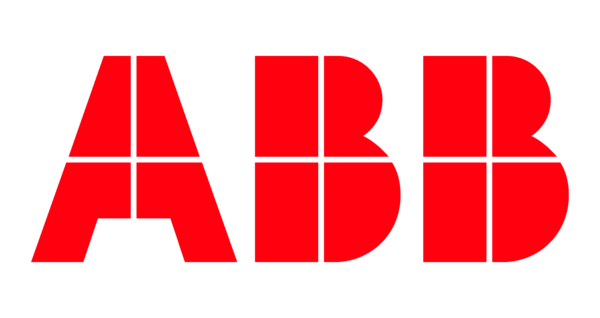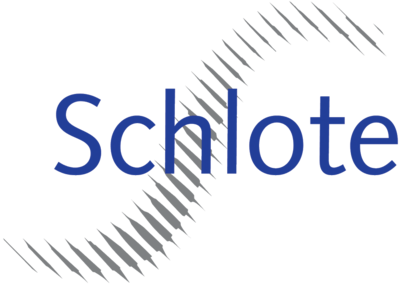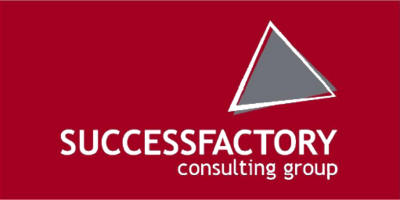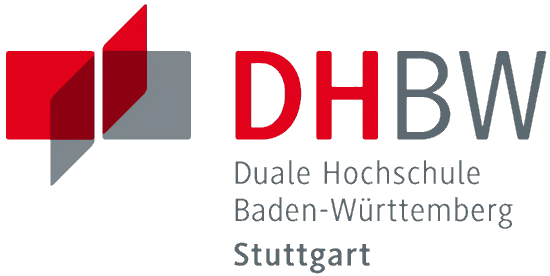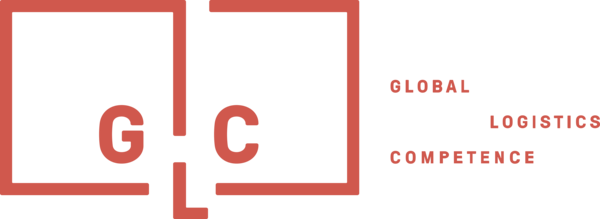Simulating Processes, Value streams and Business processes risk-free
Dynamic process simulation with Process Simulator
Shorten your time to find solutions. With the simulation add-on Process Simulator, you can visualize, analyze and optimize processes directly in the familiar Microsoft Visio interface. Transform your processes, value streams and business processes into dynamic, graphically appealing simulation models.
Take advantage of Process Simulator's predictive simulation technology to determine risk-free in a virtual environment, which solution ideas and concepts will deliver the best results for your business. Recognize bottlenecks and vulnerabilities. Increase your productivity, reduce lead times and inventories.
Process Simulator is an easy-to-learn, intuitive simulation tool for process analysis and process optimization that has the potential to change your future.
SCHOLZE-THOST GmbH is the continuation of many years of consulting expertise in facility management and planning services in technical building equipment combined with extensive expertise in the recording, analysis and billing of energy consumption.
Based on the SCHOLZE tradition, we offer both consulting and planning services.
In addition to facility management services, the "Thinking ahead" sub-division also includes sustainability.We use Process Simulator to safeguard our planning services in the field of digitalization.
The Albstadt-Sigmaringen University of Applied Sciences, Faculty of Engineering uses the Process Simulator simulation software to effectively impart specialist knowledge to students.
As part of the Simulation in Production and Logistics course, students apply their theoretical knowledge directly to practical problems with the help of the Process Simulator simulation software.
Process Simulator is increasingly establishing itself as an integral part of the course and contributes to students' learning success.
Teckentrup is a leading manufacturer of doors, industrial doors and garage doors.
They use the simulation software ProModel AutoCAD Edition to exploit optimization potential when redesigning a production line and thus check the effectiveness of the targeted measures.
The aim of the simulation study is to determine at which workstation the bottleneck is located and what the maximum production potential for doors is.
I use Process Simulator in the context of case studies on the topics of value stream mapping and production planning and control methods.
Processes from the areas of production and logistics can be mapped very intuitively and dynamic aspects and basic laws can be explained to the students.
The mapping of processing times, set-up times and malfunctions can be accomplished without any problems and one notices that the Process Simulator fully meets the requirements and needs of process and system optimizations - but in a simple way.
The identification of bottlenecks, the dimensioning of buffer sizes, the analysis of process states, the determination of the utilization of resources as well as the mapping of different products within a complex system can be modeled in an uncomplicated way and optimized in a targeted manner through the well-thought-out processing of the simulation results.
- Dr.-Ing. Tom Drews | External Lecturer MCI Management Center Innsbruck - International University of Applied Sciences GmbH -
In the fields of human-machine communication and electronic engineering and manufacturing services, the RAFI Group is one of the first contacts for leading technology companies due to its distinctive vertical integration for electromechanical systems and electronic assemblies, comprehensive development know-how and its industry expertise acquired over decades.
The RAFI Group uses Process Simulator in the development and optimization of production lines. Digi-tal twins are created and planned in parallel so that costs and types of waste can be identified in early project phases. Furthermore, value stream designs are optimized with it.
The focus is therefore on using the software to create optimal manufacturing and production lines planned with LEAN in mind.
In the master’s specialization computer-aided product development, students learn and deepen the theoretical foundations of product development processes. Practical knowledge is also imparted in the form of business games, particularly in the area of production planning and control.
The simulation software Process Simulator is used here as part of a laboratory internship, with which the students recreate and simulate the process flows of small series production as a team task. The tasks consist of using the simulation to identify the bottlenecks in the production process and to identify options for eliminating them. To do this, the students independently set up the simulation models, assess the influences of fluctuating process parameters and discuss the plausibility of the results.
The intuitive handling of the Process Simulator allows students to quickly familiarize themselves with the basic model structure and build a digital process chain. The extensive visualization options facilitate the presentation of the results and help with their interpretation.
fastplan GmbH is an engineering office for factory planning.
Our range of services covers a wide range of individual customer projects around the topic of factory. High flexibility is therefore very important to us in our software tools.
After comparing many simulation tools we decided to use the Process Simulator with Material Handling Edition, because our needs for the visualization of production processes and material supply are optimally met here in a comparatively uncomplicated and yet appealingly animated way.The program is rounded off by outstanding support.
What has been considered indispensable in many industrial sectors for decades is now also becoming increasingly important in a modern precast concrete plant:
a simulation of the processes. Everyone who operates a modern precast concrete plant knows how strong the fluctuations in the product mix, the degree of complexity, and the fluctuating workloads are in everyday life, and what a significant influence such factors have on the performance of the plant. This is where it first becomes apparent whether the existing pallet circulation system has the appropriate flexibility in terms of route guidance, whether sufficient buffer spaces are provided, whether the machines have sufficient power reserves, and whether the space for the material flow and the employees' workplaces are adequate for the tasks at hand. All in all, it is precisely these factors that determine the throughput and the labor costs consumed at the end of the day.I recommend that anyone investing in a new precast concrete circulation plant simulate the layout of the plant with the target output, the expected variation in product mix and level of complexity, the planned storage size and duration, the intended formwork material, etc., and use the simulation to optimize the design. Of course, a simulation can also be carried out for existing precast concrete plants in order to identify optimization potential or to assess the effects of planned conversions.
- Martin Dobler Projektmanagement GmbH successfully uses the Process Simulator Professional | Edition Material Handling. -
Johannes Hübner GmbH is a supplier of standard and customized solutions for encoders, tachometers and drives in the heavy-duty sector.
We use Process Simulator to create a digital image of our production. This gives us the possibility to react to changing market situations with a target-oriented adjustment and balancing of our infrastructure.
The main focus is on improving productivity and the associated reduction of delivery times.
Rentschler Biopharma SE, based in Laupheim, Germany, is a leading service company for bioprocess development and production of biopharmaceuticals, as well as for related consulting services in project planning, implementation and regulatory affairs.
Rentschler Biopharma SE uses Process Simulator to optimize the supply of ultrapure water. To avoid production interruptions, the simulations are used to ensure, that ultrapure water is reliably available to the processes.
Chemie Wocklum, one of Germany's leading chemical traders, relies on Process Simulator and a close cooperation with GBU.
The traditional company with its headquarters in Balve, Sauerland (Germany), focuses with its branches and subsidiaries on the trade with chemicals, especially acids, alkalis, solids and specialties.
In order to eliminate uncovered waste, processes must always be optimized. With Process Simulator, we have been able to analyze more complex processes and implement the first measures.
- Ümüt Yurdaer, Process Manager at Wocklum Gruppe -
The Lucerne Cantonal Hospital (LUKS) comprises the Lucerne Centre Hospital, the two primary care hospitals Sursee and Wolhusen and the Lucerne High Altitude Clinic Montana.
- At LUKS, more than 7,000 employees care for a catchment area of around 700,000 inhabitants with 850 acute-care beds.
- LUKS treats 43,000 inpatients a year and has over 680,000 outpatient contacts.The LUKS uses the simulation software MedModel for simulation-based capacity planning in the health care sector, especially for scenarios with high uncertainty.
In a current project, for example, the hospitalization of Covid-19 patients is predicted as a function of admissions and length of stay.
The SCHLOTE Gruppe is a global technology company. In highly specialized plants, industrial metalworking is carried out with innovative automation concepts.
The simulation software Process Simulator is used here for the process analysis of the fully automated systems as well as for the simulation of inventories.
Making more efficient use of renewable energies and thus actively promoting the energy transition. That's what we stand for with our innovative technology solutions. As Germany's market leader in the manufacture, delivery and construction of hybrid towers, we hold the record for the world's tallest wind tower with a hub height of 178 meters.
We, Max Bögl Wind AG, are a subsidiary of Max Bögl. The company group from Sengenthal near Neumarkt i.d.Opf. is among the top 10 largest German companies in the construction industry and has been active in the wind sector since 2010. Founded in 1929 the family-run company has around 6,500 employees with over 1.65 billion euros in annual sales worldwide.
In the field of engineering wind ProModel supports us with the planning, conception and evaluation of new production systems, as well as the entire logistical handling of our production processes.
The software simplifies decision-making processes by analyzing and evaluating measures within our concrete production and contributes to the optimization of manufacturing processes.
Hüttenwerke Krupp Mannesmann GmbH (HKM) is the second largest integrated steel mill in Germany with around 3000 employees and an extensive product range specializing in the production of steel for the processing industry. With the help of a modern and innovative company policy around 4 million tons of steel are produced each year.
Application areas of simulation:
- Analysis and optimization of logistics processes along the entire value chain of HKM
- Analysis of short and long-term strategies in terms of production logistics and existing steel mill capacity
to meet specific customer and quantity requirements
- Analysis of planned conversion measures to derive recommendations from the results
Lignum Consulting stands for consultancy, planning and organization for the international wood and furniture industry.
Lignum Consulting has decided to use Process Simulator in Industrial Engineering, in order to expand the activities concerning factory and plant planning, process analysis and optimization and Lean Management.
The issue of Industry 4.0 is being discussed very intensively among those responsible for production at the moment. The trend is towards decentralization, autonomy and networking.
In this changing environment, successfactory supports companies in terms of quality and productivity from the analysis over the improvement concept to the implementation and success control.
Logistic and material flow simulations of the GBU based on the simulation software Process Simulator are an important element in order to be able to experiment with virtual models without risk.
Since 1999, the Leonardo Group has been helping companies around the world to become more effective in the long term.
We generate sustainability through our own holistic approach. This is developed and implemented in teams of lean experts and psychologists together with the employees. In this way, we implement the right lean tools and get the employees appreciative.
Managers and employees develop a new understanding of leadership and personal responsibility. In this way, we create questioning, learning organizations with our customers.
The Leonardo Group has been using simulation solutions from GBU mbH for many years to safeguard the line design and material supply of mixed model lines. Based on the material flow simulations of the GBU based on the logistics simulators ProModel and Process Simulator, the developed line designs are analyzed, visualized and optimized in a time-dynamic manner before realization. Typical tasks are the calculation of the placement and number of IPCs, the scaling of the throughput over the number of employees used, the determination of the necessary Kanbanmengen for material supply and the design of the routes of tugger trains.
The simulation software Process Simulator has been successfully used for many years used by master students in the course simulation in production and logistics.
After a short introduction, the students independently work on a task from their company and present the results of the simulation study during the course.
GE Power AG has been working successfully with GBU mbH for almost 10 years.
As a global leader in energy, GE uses ProModel simulation software and Process Simulator for planning new, as well as optimizing existing production facilities.
Using material flow and logistics simulations, new production concepts for complete factories or individual areas are tested for their plausibility and effectiveness.
Conclusion:
Also in the field of plant engineering with its complex products is the use of dynamic simulation Proven in the concept phase and is now integrated as a "standard" in the project planning.
LOBP Consulting, a consulting company for the lubricant industry, decided to use Process Simulator Professional.
With the help of Process Simulator, design planning in grease and lubricant plants as well as bottling and packaging systems are visualized, possible bottlenecks are visualized and optimized.
International Automotive Components (IAC) is one of the leading international automotive suppliers for interior components and systems.
IAC uses a material flow simulation created by the GBU based on the logistics simulator ProModel.
For a new plant, machine purchase decisions are made with the help of our simulation solution as well as the JIT/JIS supply of the OEM customer.
For 15 years, GBU has been working as a simulation service provider for Badische Stahl-Engineering GmbH (BSE).
BSE is a global consulting company for the electrical steel industry. In the long years of cooperation, we have over 35 material flow simulations in the areas of junkyard, Steel plant, finishing, storage and transport logistics for our customers.
In the last completed project at a German stainless steel manufacturer BSE was able to help Our material flow simulation of the processes in the steelworks shows considerable potential for increasing efficiency.
Zahoransky AG, a full-service provider of
- injection molds,
- automation solutions,
- final packaging machines and
- tamping and shearing machines for brushes and broomshas decided to use Process Simulator.
With the help of Process Simulator, the potential benefits of new investment concepts are analyzed and communicated to the customers.
The powerful analysis and optimization tool
Process simulation with Process Simulator
Applications
Process Simulator can be used across industries. Learn how to use Process Simulator to analyze your processes in a dynamic way.
Process Simulator
Process Simulator is easy to use and easy to learn! Get to know the many possibilities that support you in your daily work.
Process Simulator Assessment Meetup
Schedule a web conference fpr the demonstration of Process Simulator and receive a 30-day trial of Process Simulator Evaluation as a follow-up.

















